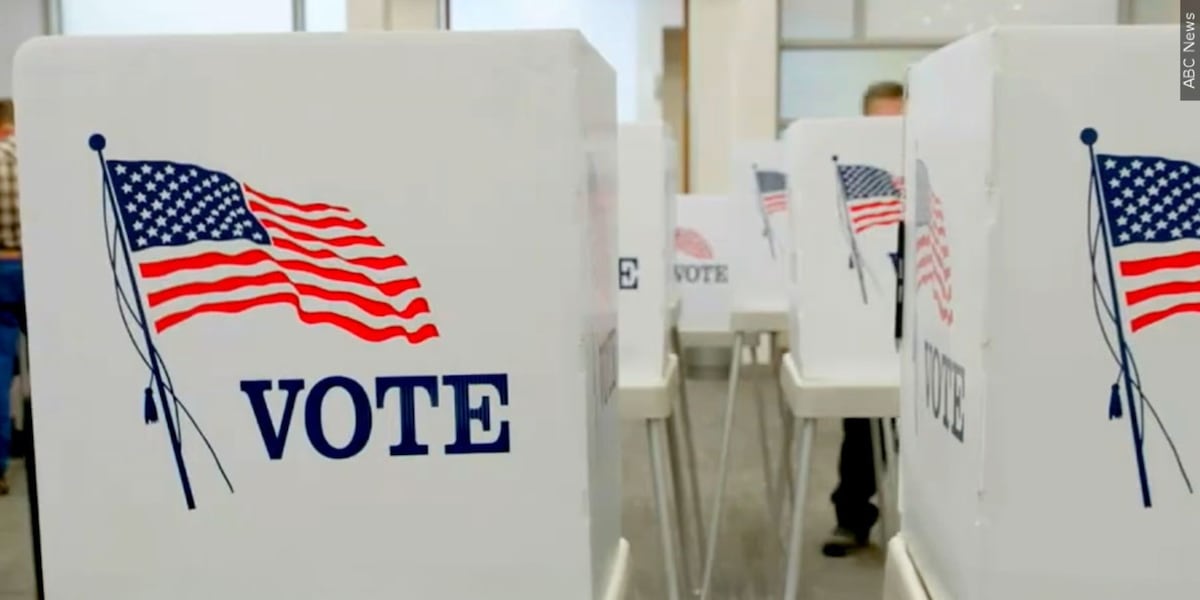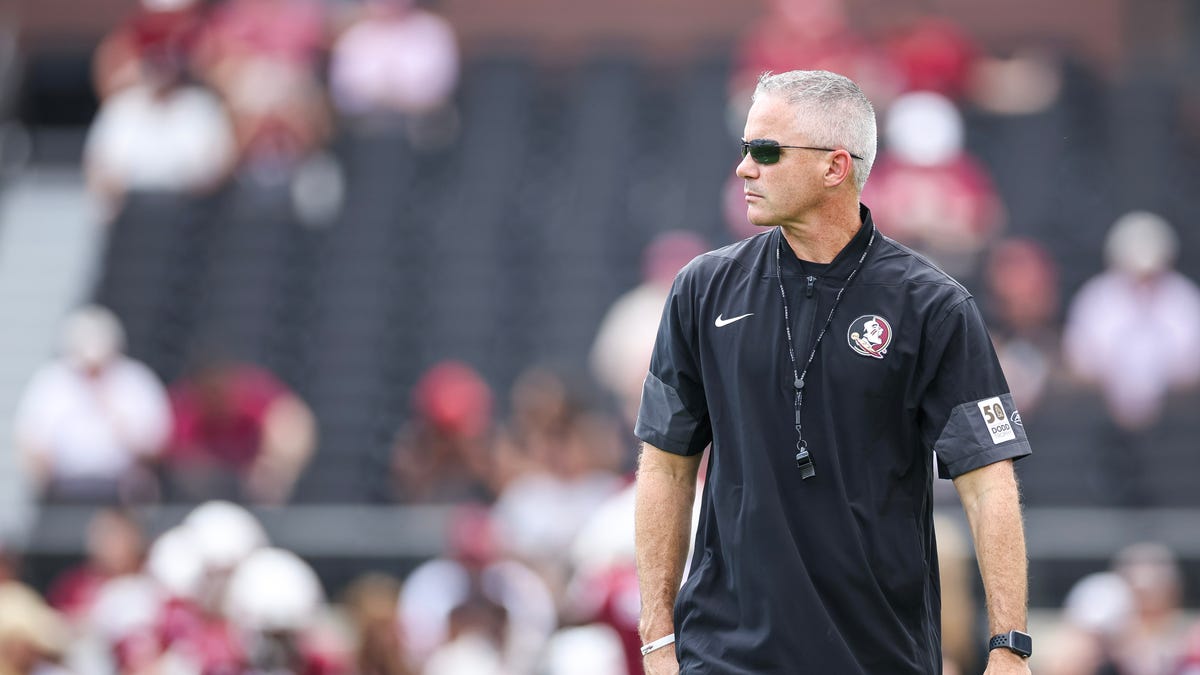Maine
Plan to add teaching of Holocaust, genocide to science education draws questions from Maine teachers

Augusta, Maine — Teachers and science advocates are voicing skepticism about a Maine proposal to update standards to incorporate teaching about genocide, eugenics and the Holocaust into middle school science education. They argue that teachers need more training before introducing such subjects that are both sensitive and nuanced.
While critics of the proposed updates said they are borne of good intentions — the proposal states that science has “sometimes been used by those in power to oppress and abuse others” — they also said that injecting the materials into a middle school science curriculum could distract from conventional scientific principles and could jeopardize science education.
The proposal states that science education in the state should reflect that “misinterpretation of fossil observations has led to the false idea of human hierarchies and racial inequality.” The proposal also states that “historically, some people have misused and/or applied the ideas of natural selection and artificial selection to justify genocide of various groups, such as Albinos in Africa or Jews in Europe.”
The proposed updates have drawn the attention of teachers’ groups in the state as well as national organizations that advocate for a better understanding of science. The concern in Democrat-controlled Maine contrasts conflicts over education in some more conservative states, where criticism has focused on the teaching of climate change, U.S. history and evolution in recent years.
The Maine Science Teachers Association testified before the state that adding the proposed content to education standards without providing professional training for teachers could jeopardize science education. The updates, which are geared toward middle schoolers, could also make it harder for young minds to absorb the more basic science concepts they are encountering for the first time, said Tonya Prentice, president of the Maine Science Teachers Association.
“As far as critical thinking skills, middle school students are still developing those, and that’s just putting it at a level that is fundamentally higher than we should expect them to handle,” Prentice said. “That’s a lot for adults to take in.”
Others said they felt the state is well-intentioned to try to incorporate social history into science education, but agreed Maine needs to first ensure that its teachers are equipped to do it. The contributions scientists have made to theories like eugenics belong in science class, but it needs to be done right, said Joseph Graves Jr., a professor of biology who is on the board of directors of the National Center for Science Education, which includes hundreds of teachers.
“The question is, should those things be incorporated into science class? My answer is absolutely yes,” Graves Jr. said. “But it comes down to when to do that and whether the people doing it are doing it in a way that is knowledgeable and pedagogically sound.”
The Maine Department of Education is performing the update, which is part of a review of standards that is required every five years. The proposed updates would have to ultimately be approved by a committee of the Maine Legislature.
The Maine Department of Education took public comments about the proposal until the middle of November and the next step is for the Legislature’s Education and Cultural Affairs Committee to make a determination about the standards, said Marcus Mrowka, a spokesperson for the education department.
The updates are the result of new requirements from the Legislature to include certain kinds of education into the curriculum, Mrowka said. Schools are now required to include content about Native American and African American histories as well as the history of genocide, including the Holocaust, Mrowka said. Mrowka said the update doesn’t constitute a change to the standards but rather represents the inclusion of a further explanation section to provide educators with additional contexts and opportunities to encourage critical thinking.
The recommended updates that are up for adoption were made by teachers, and the education department opened up the revision process to any science teachers who wanted to be involved, Mrowka said. A group of two dozen Maine science educators met several times over the summer to lead the review of the science standards, Mrowka said.
The teachers also worked with scholars and experts to include the additional content areas that the Legislature required, Mrowka said.
“The teachers included a further explanation section to provide educators with additional contexts and opportunities to encourage critical thinking that incorporate the additional content required by the Legislature,” Mrowka said.
The state sought public comments about the current science standards earlier in the year and received numerous comments from educators about the importance of challenging students. Middle schoolers can grapple with “rigorous and relevant learning for the world that we live in,” testified Robert Ripley, a sixth grade teacher in the Oxford Hills School District.
“We want our students to be the builders of tomorrow, and they need the skills to create that unknown future world,” Ripley testified.
Alison Miller, an associate professor at Bowdoin College who served on the state steering committee for science standards, called the revisions “misguided.” Miller said the heavy subjects of genocide and scientific racism seemed to be shoehorned into the standards.
“This is not a shoehorn-able subject,” Miller said. “This is about context and nuance, and asking teachers to do it without the context and nuance that it takes to take on a subject so large and so important is asking them to do it superficially or not at all.”

Maine
Delta Ambulance won’t require paramedics on some emergency calls in central Maine

Town officials sought answers from Delta Ambulance on Tuesday about a new plan to start using EMTs instead of sending paramedics on every emergency call, at the same time the regional transport service’s fees are going up.
Leaders from China, Belgrade and Vassalboro discussed their concerns with Chris Mitchell, Delta’s executive director, at China’s town office. Mitchell announced earlier this month that Delta’s per capita fees for towns will rise from $35 to at least $55 in July 2026, raising the alarm for towns that rely on the service.
He also said Delta is switching its EMS license from a paramedic level to an EMT level, which will permit EMTs to go on calls with or without a paramedic and offer basic life support. Paramedics with advanced life support training will also be working and able to intercept EMT ambulances on the way to a hospital if more care is needed.
Town officials worry the change means a higher cost for a more limited service.
Ambulance dispatchers determine how serious a call is based on the information they receive from an emergency caller, but it isn’t always reliable. Becky Hapgood, China town manager, said she is concerned a paramedic will be left behind for an emergency that requires advanced life support.
Mitchell said the change in licensure is a way of addressing paramedic shortages across the region. Calls that previously would have gotten no Delta ambulance because all paramedics were occupied can now get a basic-level ambulance, which Mitchell said would cover 57% of the service’s calls.
Mitchell said that because the stakes are higher in rural areas, Delta will have conversations with each town about its need for paramedics, considering rural roads and distance from an emergency room.
Delta operated a paramedic intercept system with Waterville that Mitchell said was made easier because of the two local hospitals and a concentration of calls in the city. Waterville, which runs its own transport operation, has a mutual aid agreement with Delta but is not one of the communities the service contracts with.
“We had a fly car — a paramedic on a SUV — covering two non-medic ambulances,” Mitchell said. “And that system worked really well, because at no point was there a paramedic that was really far away from a call.”
He added: “That model doesn’t translate well to a 500-square mile coverage area.”
Winslow has a mutual aid agreement with Delta to transport for each other free of charge, but paramedic shortages have strained that relationship, Winslow fire Chief Mike Murphy said during an August interview. Winslow calls Delta for a paramedic intercept when the town’s crew of per diem paramedics are occupied with other calls.
From July 2024 to July 2025, Murphy said, the department requested a paramedic from Delta 50 times and Delta said no 37 times.
Those instances forced Winslow to call Waterville or Fairfield for a paramedic, Murphy said, delaying the time help arrived on scene, especially after the closure of the nearest emergency room at Northern Light Inland Hospital in Waterville. Murphy said he wants to set up new inter-town agreements that rely less on Delta.
“I’m just looking to find a quicker response time if I don’t have a medic,” Murphy said.
Mitchell said during an interview in August that Delta prioritizes resources for towns that do not “already have the ability to transport.”
“If we sacrifice our last unit to get Winslow a paramedic, now those other towns that don’t have an ambulance — now they have nobody,” Mitchell said.
The change in licensure will bring more flexibility to calls, Mitchell said Tuesday.
The new plan will not take paramedics off the road, it will instead disperse them among more vehicles. Delta has hired 24 new people — mostly basic EMTs — in the last few months, Mitchell said.
“We didn’t reduce the number of paramedics in the system,” Mitchell said. “We just moved them around a little bit.”
Maine
New history trail shows resilience of Portland’s Jewish community
Standing on the other side of Fore Street across from Dock Fore Tavern, you might not pay attention to the faint yellow lettering of “Zeitman’s Grocery Store” that can be read on the bricks above the sports pub’s red awning. But once Riva Krut points it out, you won’t miss it again.
Moments later, as Krut tells the story of the grocery store run by a Jewish couple who immigrated from Ukraine at the start of the 20th century, the history of the building is also illuminated. The tale of 336 Fore Street is one of familial love, loss, prevalence in the face of antisemitic rulings from City Hall, and a Jewish businesswoman who stood under 5 feet tall, lived to 97 years old, and shaped the commercial district of Portland.
This stop along the new Portland Jewish History Trail is one of 28 that highlight the often unnoticed Jewish history of Portland.
The trail unveils the history of Jewish neighborhoods, congregations and synagogues, businesses, and involvement in the welfare and politics of the city from the end of the 19th century through the present. Using standing buildings, historic photos and research, the trail weaves together a portrait of Portland’s Jewish community as they made space for themselves while also developing their identity as Americans and Mainers alongside other immigrants in Portland.

“Portland’s history and future has been and will be made of many, many communities,” said Krut of Cumberland, who created the trail.
Launched with its first tour on Sunday, the trail consists of 28 locations, divided into five walking routes sorted by location and topic: the East End and Munjoy Hill, Middle and Fore Street businesses, Portland’s downtown, Woodford’s Corner and Deering Center, and Jewish cemeteries.
While anyone can walk the five trails with the map and historic background available online or in an app, the guided walking tours begin in front of Maine Jewish Museum and currently combine segments of three trails in a two-and-a-half-hour, three-mile loop.
During the inaugural tour, 20 participants stood outside 11 Portland buildings as they listened to Krut, 67, tell stories of their residents and activities over the centuries. With so many buildings standing in Portland for over 100 years, the tour “let the bricks talk.”
“We’re here all the time. It’s nice to see it in a new light,” said tour participant Kim Levy, 52, of Cape Elizabeth.
The trail emerged from the research of Krut’s husband, Harris Gleckman, who grew up Jewish in Portland. After a career working for the United Nations in New York and retiring in Maine, Gleckman began researching Jewish history in the state as a hobby, compiling the database using sources such as census records and annual business directories.

Over 20 years, the project became Documenting Maine Jewry, a website containing over 40,000 biographical records, and 10,000 photographs, newsletters, and other documents, and pictures of over 7,800 Jewish headstones.
The Maine Jewish Museum adopted Documenting Maine Jewry’s catalogue this spring in collaboration with Colby College, exemplifying the museum’s emerging effort to tell the stories of all Jews in Maine, not just Portland, said the museum’s executive director, Dawn LaRochelle.
“We really want to capture Jewish history in all of Maine, and hopefully these walking tours will ultimately be replicated in different parts of Maine, not just Portland,” said LaRochelle.
The Jewish History Tour – the first Jewish historic tour offered in Portland and first tour by the museum – was created by Krut in honor of her husband’s research. A historian of Jewish immigrant history herself, she is versed in linking location and dates to create an understanding of the past.
“Place and identity for me are connected. A place is also about time. What that building meant in 1912 is different than today,” she said.
Stops on the guided tour include the North School, a former public school where up to 40% of a class appeared to be Jewish on attendance records; the original location of the synagogue that is now condos and a hair salon; the former Jewish Community Center, a hub of activity and culture on Cumberland Avenue, and City Hall, where Linda Abromson served as the first Jewish female mayor starting in 1982.
Debbie Wineberg, 68, took the walking tour on Sunday with her husband, Howard Wineburg, 71, of Wells. Her Jewish grandparents and mother lived on Portland’s Vesper Street and attended the Etz Chaim Synagogue, where the Maine Jewish Museum now also resides on Congress Street.
Debbie Wineberg said that in the face of increasing antisemitism, she thought twice about attending a public Jewish event like the tour. But ultimately, she felt like it was important to show up.
“We want to support organizations like the Maine Jewish Museum,” she said.
“We’re not big synagogue goers, so we wanted to come and get the education side of things,” said Howard Wineberg.
At a time where the Jewish community faces both prejudice and division over the war in Gaza, the tour and its participants instead focused on what connects Jewish Mainers to each other and to other communities. This was particularly accomplished by viewing Portland Jewish history through the lens of immigration and building community.

“I am not interested in talking about antisemitism. I’m interested in our commonalities, and the immigrant story is that story,” said Bobbie Lamont, 62, who helped lead the tour group.
As the tour moves through locations and time periods, it takes participants through the arrival of Jewish immigrants, primarily from Eastern Europe to Portland to how they integrated and shaped the city over the generations in all areas of life.
Krut said the Jewish history of resilience in the face of prejudice is one that she hopes will resonate with all types of immigrants in Portland today as they face challenges and persist in building a life here.
“I looked at it as a series of events for minorities now to look at and see how the Jews found success in the face of antisemitism,” said Krut.
Both Krut and tour participants noted how the Jewish History Trail intertwines with other historic walking trails in Portland such as the trail about Black and abolitionist history, the women’s history trail, a queer history trail, and a tour of Chinese-American history. Just as the histories of marginalized groups are connected through the city’s past, Krut hopes that the growing network of historic trails will inspire more of these histories to be told.
“Every group has a story, and we should go out and tell it,” said Krut.
Maine
Maine fall turkey season opens Monday

Fall turkey season kicks off on Monday. Depending on the zone, hunters are able to shoot up to five birds for the season.
Wildlife management zones 1, 2, 4, 5 and 9 are closed to the taking of turkeys.
Maine’s fields and forests weren’t always filled with these entertaining game birds.
In the early 1800s a combination of intense farming and unregulated hunting eliminated turkeys from the state.
Decades of failed reintroduction attempts followed, including the release of 24 birds on Swan Island in Sagadahoc County in 1942 and the introduction of both wild and game-farm stocks in the 1960s.
It wasn’t until 1977, when 41 wild birds from Vermont were released into York and Eliot, that the population began to grow. Additional releases in Waldo and Hancock counties helped further rebuild the population.
In the late 1980s, birds obtained from Connecticut’s wild turkey population helped augment the increasing one in Maine.
Turkeys are now found in all of Maine’s 16 counties. Maine Department of Inland Fisheries and Wildlife generated population estimates from harvest data and a recent banding study, placing the current spring population at 70,000 birds — this does not include poults hatched during the current year.
Unlike spring turkey hunting where the focus is on shooting toms, fall hunting allows for either sex. These regulations allow for more flexibility, but also possibly more challenges. Without the opportunity to call birds into range like you can during the breeding season, hunters must rely more on group behavior and movement patterns.
Hunting turkeys helps control numbers in wildlife management zones where populations are strong, preventing issues such as agriculture damage, competition with other ground-nesting birds and rising conflicts with landowners.
-

 Finance7 days ago
Finance7 days agoReimagining Finance: Derek Kudsee on Coda’s AI-Powered Future
-

 World6 days ago
World6 days agoSyria’s new president takes center stage at UNGA as concerns linger over terrorist past
-
North Dakota6 days ago
Board approves Brent Sanford as new ‘commissioner’ of North Dakota University System
-

 Technology5 days ago
Technology5 days agoThese earbuds include a tiny wired microphone you can hold
-

 Culture5 days ago
Culture5 days agoTest Your Memory of These Classic Books for Young Readers
-

 Crypto5 days ago
Crypto5 days agoTexas brothers charged in cryptocurrency kidnapping, robbery in MN
-

 Crypto7 days ago
Crypto7 days agoEU Enforcers Arrest 5 Over €100M Cryptocurrency Scam – Law360
-

 Rhode Island6 days ago
Rhode Island6 days agoThe Ocean State’s Bond With Robert Redford



















